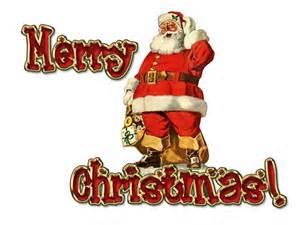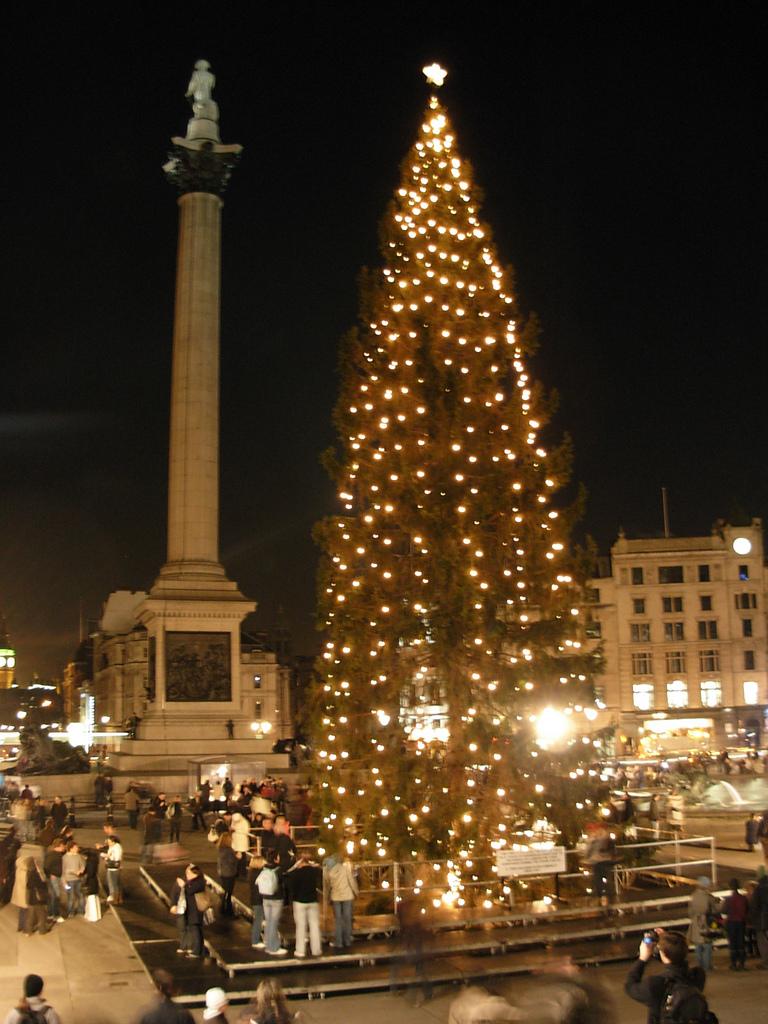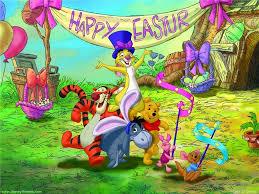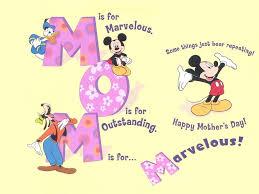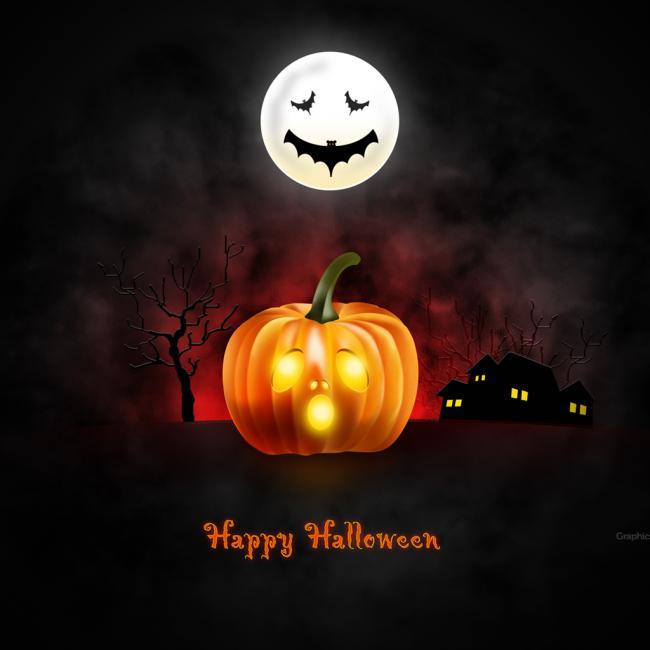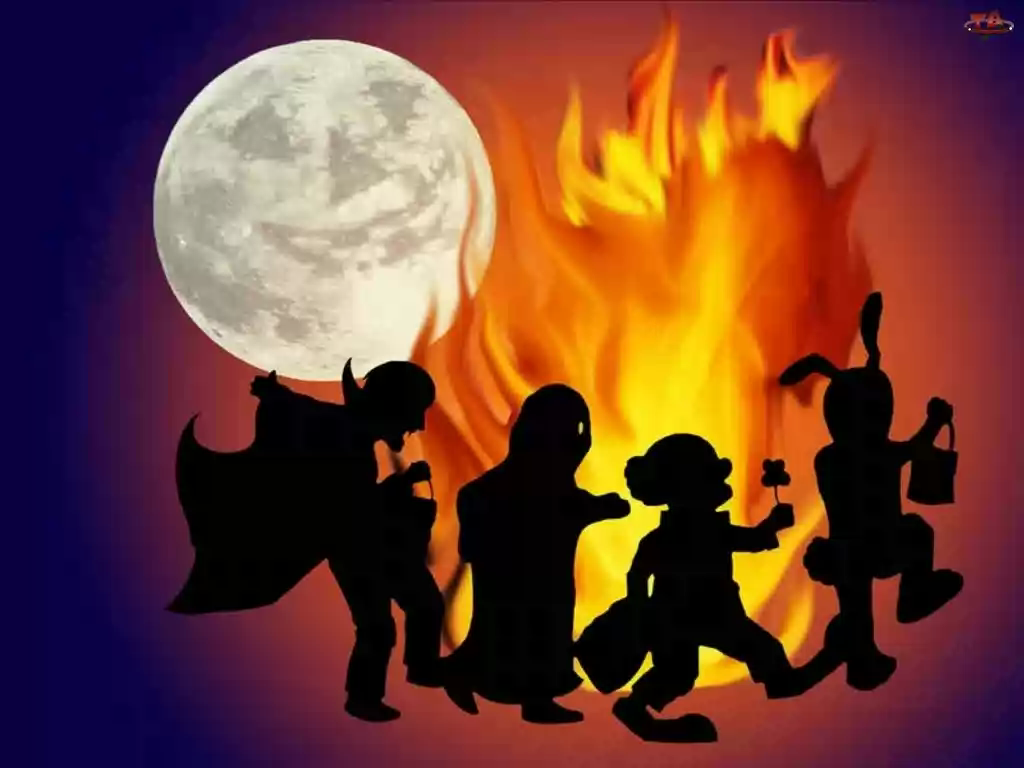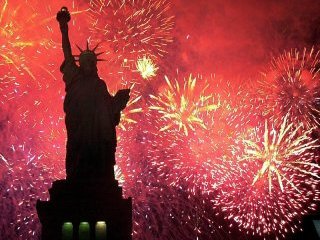Конспект урока по английскому языку для 5 класса
По УМК Кузовлева В.П. Английский язык 5 класс
Тема урока: «Festival of British holidays».
Цель урока: активизировать коммуникативные навыки учащихся.
Задачи:
1. образовательные:
— тренировать учащихся в лексике по теме «Праздники,
— практиковать в составлении монологического высказывания по структуре,
— тренировать в диалогическом общении по образцу,
— активизировать лингвокультурологический материал по теме: «Праздники».
2. развивающие:
— развивать коммуникативные навыки,
— развивать орфографические навыки,
3. воспитательные:
— воспитывать чувства уважения и доброжелательности к стране изучаемого языка и ее народу, своим сверстникам,
— развивать и поддерживать устойчивый интерес к английскому языку, речевому и культурному общению друг с другом.
Применяемые технологии:
— коммуникативное — ориентированное обучение,
— отработка техники чтения,
— составление мини – монолога с различными речевыми задачами,
— развитие познавательного интереса.
Оборудование:
— наглядность: тематические картинки, лексические таблицы, комплекты дидактических раздаточных материалов, проектор,компьютер
1. Организационный момент.
— Stand up, please.
— Stand still.
— Good morning, dear children
+ Good morning, good morning,
Good morning to you,
Good morning, good morning,
I’m glad to see you.
— Thank you, sit down, please.
Today we have an unusual day.
I hope you will have a wonderful time.
Let us learn, play and sing together!
— Now, children, answer my questions, please.
— What’s the date today?
+ Today is the 19th of March.
— What day of week is it today? – Is it Monday or Saturday?
+ Today is Saturday
— What season is it now? Is it summer, is it spring, is it winter?
+ It’s winter.
— What the weather is it today?
— Is it cold or hot?
+ Today it’s cold.
— Is it today cloudy?
+ No, today it’s not cloudy. Today it’s sunny.
— Is it today frosty?
+ No, today it’s not frosty.
— Good, thank you.
2. Фонетическая зарядка.
Now, our phonetic exercises,
Sing a song.
Now, let’s have a break. Do morning exercises.
(выбираю ученика для проведения зарядки)
— Who is eager to show the exercises?
— Stand up, stand still.
— Listen to the music.
“IF YOU ARE HAPPY’
1.
If you are happy and you know it
Clap your hands (clap, clap)
If you are happy and you know it
Clap your hands (clap, clap)
If you are happy and you know it
And you really want to show it
If you are happy and you know it
Clap your hands (clap, clap)
2.
If you are happy and you know it
Stomp your feet (stomp, stomp)
If you are happy and you know it
Stomp your feet (stomp, stomp)
If you are happy and you know it
And you really want to show it
If you are happy and you know it
Stomp your feet (stomp, stomp)
3.
If you are happy and you know it stap your knees
(stap, stap)
If you are happy and you know it stap your knees
(sap, stap)
If you are happy and you know it and you really want to show it
If you are happy and you know it stap your knees
(stap, stap)
4.
If you are happy and you know it click your fingers
(click, click)
If you are happy and you know it click your fingers
(click, click)
If you are happy and you know it and you really want to show it
If you are happy and you know it click your fingers
(click, click)
5.
If you are happy and you know it do all four
(clap,clap, stomp, stomp, stap,stap, click,click)
If you are happy and you know it do all four
(clap,clap, stomp, stomp, stap,stap, click,click)
If you are happy and you know it and you really want to show it
If you are happy and you know it do all four
(clap,clap, stomp, stomp, stap,stap, click,click)
If you are happy and you
— Good, thank you. Sit down, please. Take your places. Go on our work
You’re clever boys and girls.
3. Речевая зарядка.
— Today, I will tell you a lot of interesting facts about… What about will we talk today? What do you think? (Учащиеся должны догадаться о чем пойдет речь, судя по картинкам)
Christmas,
New Year,
St. Valentine’s Day,
Easter,
Halloween,
Pancake Day.
1. Показываю картинки с праздниками,
2. Сразу не перевожу, дети могут помогать,
3. Предлагаю вспомнить, когда эти праздники отмечаются.
— O’k, let’s remember when these holidays are celebrated. Look at the board, please. This is a table.
— Look at the 1st column: These are the names of the holidays
— Look at the 3nd colum: The dates when these holidays are celebrated.
Match the holidays with their dates. (ученики заполняют по желанию таблицу.)
|
New Year’s Day Christmas Easter Halloween St. Valentine’s Day Pancake Day |
is celebrated |
in March January, 1 October, 31 December, 25 in April February, 14 |
— Good thank you. Now answer my questions:
— Do you like holidays?
+ Yes, I like holidays.
— Do people cook dinner on holidays?
+ Yes, they do.
— Do people make funny costumes?
+ Yes, they do.
— Do people send greeting cards?
+ Yes, they do.
— Do you like presents?
+ Yes, I like presents.
— Do you like parties?
+ Yes, I like parties.
— Do you like to sing at the parties?
+ Yes, I like to sing at the parties.
— Do you like to dance at the parties?
+ Yes, I like to dance at the parties.
— Very well done! Thank you.
4. Ввод новой лексики.
— Today we’re going to learn some new words.
Look at the board, please
1. I’ll read new words.
(показываю картинки).
1) Christmas tree
2) greeting card
3) Father Christmas
4) presents
5) to decorate
6) to celebrate
7) to present

9) chocolate eggs and hears
10) pancakes
2. I’ll read and you repeat after me, please.
(читаю дети за мной повторяют)
1. O’K now I’ll mix these words.
Say in English: “What is this?”
Altogether, please
-What is this?
+ It’s a pumpkin…
(мешаю карточки, дети хором называют слово на английском)
2. Thank you, now I want to listen to everyone, in English.
(спрашиваю каждого ученика, как будет это слова на английском)
3. I’ll show you the cards and translate into Russian “What is this?” please.
4.
— Thank you, good. Look at the board, please. There is a table. You can see 3 columns:
— Holiday’s symbols, what can you do on holidays? Holiday’s meal.
— Take card from the board and put the new words into these columns.
|
HOLIDAY’S SYMBOLS |
WHAT CAN YOU DO ON HOLIDAYS? |
HOLIDAY’S MEAL |
|
Christmas tree greeting card father Christmas presents pumpkin |
to decorate to celebrate to present |
chocolate eggs and hears pancakes |
— let’s check. (на экране появляется табличка с правильным заполнением)
— Good, you’re right.
5. Чтение.
(раздаю на парты листы с текстами, читаем тексты с праздниками по очереди)
— Now we are going to read the texts about the most popular holidays in Britain.
— Begin, please.
New Year’s Day
New Year’s Day celebrates the start of a new year. It is less popular in Britain than Christmas. But it is also celebrated there. Not all English people celebrate New Year.
They have a New Year party at home. On that day they wish a “Happy New Year”. English and American people often make New Year’s resolutions.
Christmas
The most popular holiday in Britain is Christmas. It is a happy holiday for many people. Some weeks before it, people send greeting cards to the friends.
You can buy Christmas cards or you can make them. People buy a Christmas tree and decorate it with toys, balls. At night Father Christmas comes. He has got a big bag of presents for children.
St. Valentine’s Day
In February the British have a holiday for all lovers – St. Valentine’s Day. Nobody knows much about St. Valentine. On this day children write their names on cards.
People give them to the friends. Many people give cards and flowers. St. Valentine’s Day is the day of love for many people.
Pancake day
In England there is a day for pancakes. It is a funny holiday. It is usually in March. At home families have pancakes for dinner.
At school the children have pancakes for lunch. People have a lot of fun on that day. This holiday is popular in England.
Easter
In April English people celebrate Easter day. They celebrate it as the start of spring. In England it is time to get presents. On Easter Sunday children get chocolate egg, rabbits.
You can buy them before Easter. “Happy Easter!” – say people in Great Britain greeting each other.
Halloween
Autumn comes and it is time to celebrate Halloween. It is a funny holiday. Halloween is a great holiday.
In the past this festival was a time of fear. People believed in witches and they stayed at home.
— That’s quite good.
And now let’s try to do true and false statements.
6. Монолог.
Make up a story about your favourite holiday.
Look at the board, please.
(объясняю, как по схеме составить монолог)
I’ll give you 1 min.
My favourite holiday is …
— Christmas
— New Year
— St. Valentine’s Day
— Pancake Day
— Easter
— Halloween
It is celebrated in …
— winter
— spring
— summer
— autumn
The symbols are …
— Father Christmas
— St. Valentine’s Day
— presents
— boiled eggs and chocolate hears
— pancakes
— pumpkin
The favourite meal is …
— sweets
— cakes and candies
— chocolate eggs
— pancakes
On this day people …
— wish a merry Christmas
— say “Happy Easter”
— wish “Happy New year”
— have pancakes for lunch
— sing, dance
— get presents
— Good, thank you.
7. Игра.
Дети делятся на 2 команды, каждой из которой выдаются лепестки, на задний стороне которых написаны поздравления и праздники, детям необходимо на время к сердцевине с названием «Поздравления» прикрепить поздравления, с названием «Праздник» прикрепить праздники, чья команда быстрее та и победила.
8. Письмо
Учитель обясняет детям, что самый любимый праздник это конечно День Рождения и предлагает заполнить приглашения на праздник по примеру.
— O’K, but the favourite holiday is your birthday. Let’s write the invitation to your birthday party. Look at the picture.
Dear Sue,
Please come to my party.
On Saturday
Time 8 o’clock
From Jane
9. Рефлексия.
10. Домашняя работа.
Написать сочинение про свой любимый праздник.
11. Подведение итогов урока.
Список используемой литературы:
Кузовлев В.П. Английский язык 5 класс
Урок английского языка в 6 классе.
Тема: “Holidays/Праздники”.
Цели урока:
Образовательная:
Активизация и закрепление лексического материала по теме, совершенствование монологической, диалогической, письменной речи, совершенствование навыков аудирования в рамках заданной темы.
Развивающая:
Развитие памяти, внимания, логического мышления, познавательных навыков.
Воспитательная:
Воспитание толерантного отношения к традициям (праздникам) народов других стран, воспитание ответственного отношения к обучению, к традициям (праздникам) России.
Оборудование урока:
-
компьютер;
-
проектор;
-
дидактический материал;
-
наглядный материал.
Ход урока:
-
Организационный этап.
Good morning, girls and boys! Good morning, dear guests! I am glad to see you! How are you? So, we begin.
-
«Мозговой штурм». Определение темы урока.
На доске развешены листы с названиями праздников:
New Year, Christmas, Women’s Day, May Day, Victory Day, Easter, Motherland Defender’s Day, Independence Day, Day of Knowledge, Day of Russia, Space Day, Teacher’s Day, Halloween, Thanksgiving Day, St. Valentine’s Day, Father’s Day, Mother’s Day, April Fool’s Day, birthday, wedding, jubilee.
Учащимся предлагается сформулировать тему урока – Holidays (слайд 1).
-
Фонетическая зарядка.
-
Repeat after me:
Учащиеся повторяют за учителем названия праздников, затем читают названия некоторых праздников по транскрипции (слайд 2).
-
Read and translate the word combinations:
Учащиеся читают и переводят словосочетания, написанные на доске:
-
make presents for my relatives
-
make telephone calls
-
have a picnic with my friends
-
visit my friends and relatives
-
buy presents for my friends and relatives
-
send postcards
-
cook special dishes
-
go out with my friends
-
invite my friends to my place
-
Речевая зарядка.
Answer the questions:
-
Do you like holidays?
-
What do you usually do on holidays?
-
Whom do you invite to your holidays?
-
Do you get and give presents?
(слайд 3)
-
Совершенствование навыков чтения.
-
Учащиеся читают и переводят микротексты о праздниках (слайды 4 – 11).
September
In Great Britain children don’t go to school on the 1st of September. They begin to study on the second Tuesday of September.
October/Halloween
On the 31st of October there is Halloween. People make it from a pumpkin. Children like Halloween parties; they put on witch’s and ghost’s dresses. They go “trick or treat”.
Christmas
On the 25th of December there is the greatest holiday of all in England – Christmas. People send X-mas cards to their friends and relatives. People buy a Christmas tree and decorate it with toys, coloured balls and lights. Children wake up early to find stockings full of small presents on their bed.
New Year
New Year British people celebrate on the 31ST of December. Most people see with friends and relatives.
At midnight they sing New Year songs and wish a happy New Year.
St. Valentine’s Day
On the 14th of February there is St. Valentine’s Day. People send Valentine’s cards to someone they love. Usually they don’t sign them – you must guess who sent cards to you.
Mother’s day
In March there is a holiday for English women – Mother’s Day. People in the family try to help her.
On that day they visit their mothers and give them presents and “A Mother’s Day Card”.
Easter
In April or at the end of March English people celebrate Easter Day. On Easter Sunday children get chocolate eggs and rabbits.
April Fool’s Day
April Fool’s Day is on the 1st of April. English children like this day very much. They play jokes and tricks on their friends.
Father’s day
In June the English people celebrate Father’s Day. On that day children send cards and give presents to their father.
-
Работа в парах. Прочитать тексты, найти и исправить в них ошибки (в данном задании используется технология развития критического мышления).
Let’s read the texts about holidays. The texts have some mistakes. Please, find and correct them. Work in groups. Fill in the table.
1) On the 2th of June there is St. Valentine’s Day. People send Valentine’s cards to someone they don’t love. Usually they don’t sign them – you must guess who sent cards to you.
2) New Year British people celebrate on the 1ST of February. Most people don’t want to see with friends and relatives. At midnight they sing New Year songs and wish an unhappy New Year.
3) In Russia children don’t go to school on the 1st of September. They begin to study on the second Tuesday of September.
4) In August there is a holiday for Russian women – Mother’s Day. People in the family don’t try to help her. On that day they visit their fathers and give them presents and “A Mother’s Day Card”.
|
Correct sentence |
|
|
Text 1. |
|
|
Text 2. |
|
|
Text 3. |
|
|
Text 4. |
-
Тренировка лексических навыков.
-
Учащимся предлагается ответить на вопрос: When is … celebrated?
-
Игра “Find your Pair” (также служит в качестве физкультминутки).
Учащиеся получают карточки. На одних названия праздников, на других – даты. Учащиеся ищут свою пару.
-
We can divide all holidays into 4 groups: official, non-official, religious, special days.
Учащиеся соотносят напечатанные названия праздников с названиями групп.
-
Совершенствование монологической речи.
Speak about your favourite holiday! (слайд 14)
-
Совершенствование навыков письма.
Children, your summer holidays will come soon.
Do you like summer holidays?
What are you going to do on your summer holidays?
Учащиеся слушают песню “Summer song”.
And now write please the letter to your friend about your summer holidays.
Учащимся пишут свое письмо по образцу. (слайд 15)
Rembuevo
3rd May 2014
Dear __________
I really I am sorry I haven`t answered your letter sooner. Please, forgive me. But I enjoy your letters very much.
My summer holidays will come soon!!! It’s_______________________________________________________
The weather is______________________________________________________________________im summer.
I am going to ___________________________________________________________________________in June.
In July and in August I will ______________________________________________________________________
____________________________________________________________________________________________.
As for me I am OK. And how are you? What do you do on weekends? Are you going to come and see me? I am waiting for my summer holidays, because I want to see you very much. I miss you.
Write me back, please.
With love
Your ________________
(Дополнительное задание – Рабочая тетрадь – упр. 22, стр.75).
-
Подведение итогов урока. Рефлексия с помощью инструмента «PMI» (плюс, минус, интересно).
|
plus |
minus |
interesting |
6
T.: Good morning, children!
The theme of our lesson is “English holidays” and our task is to get acquainted with the holidays which English people celebrate. “Holidays!” Listen attentively to this word. It sounds solemnly. And you immediately imagine beautifully decorated streets and squares, much music and dancing, fireworks and salutes. It is when people are happy. It is when the sky is blue and the sun shines brightly.
(The pupils sing a song “May there always be sunshine”).
1) “A song “May there always be sunshine!”
Bright blue the sky,
Sun up on high –
That was the little boy’s picture.
He drew for you,
Wrote for you too,
Just to make clear what he drew.
May there always be sunshine,
May there always be blue skies,
May there always be Mummy,
May there always be Me!
T.: Our lesson will be held in a form of oral magazine, consisting of 8 pages.
The first page is about the most favourite holiday of both children and grown-ups Christmas. Let’s listen to the pupil who will tell us about this wonderful holiday.
P.: The 25th of December is Christmas Day. It’s a happy holiday for all people of England.
Some weeks before Christmas English people are busy. They send greeting cards to all their relatives and friends. Many children make Christmas cards themselves.
People buy Christmas trees and decorate them with toys, coloured balls and little coloured lights.
P.: On Christmas Eve people put their presents under the tree. When children go to bed, they put their stockings near their beds.
At night Father Christmas comes. He has got a big bag of presents for children. He puts the presents into the children’s stockings.
On this holiday children sing songs, dance and recite poems.
(The pupils sing songs “Jingle Bells” and “We wish you a merry Christmas”).
(The pupils sing a song “New Year Day”).
2) Christmas (the 1st page)
a) A song “Jingle bells”
Dashing through the snow
In a one- horse open sleigh
Over the field we go,
Laughing all the way
Jingle bells!
Jingle bells
Jingle all the way,
Oh! What fun it is to ride
In one-horse open sleigh!
b) A song “We wish you a merry Christmas”
We wish you a merry Christmas,
We wish you a merry Christmas,
We wish you a merry Christmas
And a happy New Year.
“New Year Day”
New Year Day will soon be here.
New Year Day will soon be here.
And I can hardly wait.
Santa will be coming
Soon he will be coming.
New Year Day will soon be here
And I can hardly wait.
T.: As you have already guessed the second page is about New Year’s Day.
P.: Not all English people celebrate New Year. Those who do celebrate it on the 31st of December. A lot of people go to Trafalgar Square to see the Christmas tree. They have a New Year party at home. When Big Ben strikes twelve they wish their dearest and nearest a “Happy New Year”.
T.: There are many poems about New Year’s Day. Will you listen to some of them?
(The pupils recite the poems “Welcome, New Year’s Day!” and “New Year’s Day”.)
a poem “Welcome, New Year’s Day!”
At the New Year party
New Year’s Day, happy day.
We are all glad and very gay.
We all dance, and sing, and say,
“Welcome, welcome, New Year’s Day”.
a poem “New Year’s Day”
A happy New Year to you
A happy New Year to me
A happy New Year to all our friends
Wherever they may be.
A happy New Year to school
And to our teachers too
A happy New Year to everyone
And I wish my wish comes true.
T.: Now we have come to the third page and will speak about the most romantic holiday the holiday of lovers St. Valentine’s Day.
P.: February 14th is a pleasant day to remember. It is St. Valentine’s Day. This holiday is celebrated by sending or presenting special Valentine cards to your dearest and nearest. You mustn’t write your names on the cards. Those who get a Valentine card must guess who has sent it.
(The pupils give each other Valentine cards and recite short poems).
-
I’ll be your sweetheart
If you will be mine,
All of my life
I’ll be your Valentine.
-
The rose is red,
The violets are blue,
The honey is sweet
And so are you.
-
Just a little note to say,
“Have a happy Valentine’s Day!”
-
You’d make the nicest Valentine
That there could ever be!
And so I’m asking,
“Please, be Valentine with me?”
T.: The fourth page of our oral magazine is about the great religious holiday Easter. What do you know about this holiday?
картинка
P.: At the end of March English people celebrate Easter Day. They celebrate it as the start of spring or a religious festival. In England it is time to give and to get presents.
On Easter Sunday children get chocolate Easter eggs or rabbits. Sometimes parents hide them in the house or in the garden and the children look for them.
T.: There is no word dearer than the word “mother” and the fifth page is called Mother’s Day. Who wants to tell us about this holiday?
P.: In March there is also a holiday for English women – Mother’s Day. People in the family try to make it a day off for mother and help her in any way they can. On that day all mothers get flowers and little presents.
T.: And now listen to a touching poem “My mother”.
P1.: Who led me when I was a child,
And hushed me in her arms so mils?
All: My mother.
P2: Who sat and watched my childish head,
When sleeping in my little bed?
All: My mother.
P3: When pain and sickness made me cry,
Who looked upon my heavy eye?
All: My mother.
P4: Who dressed my doll in clothes so gay,
And taught me often how to play?
All: My mother.
P5: Who ran to help me when I fell,
And would some funny stories tell?
All: My mother.
P1: And when you are sick and old and grey,
P2: My healthy arm shall be your stay,
P3: And I will calm your pains away.
All: My mother.
T.: There is a funny holiday which children all over the world are fond of. What holiday is it?
Картинка день дур.
P.: All Fools’ Day.
T.: Yes, you are right. And the sixth page of our oral magazine is about this holiday. Let’s speak about it.
P.: English schoolchildren like the 1st of April, when people play jokes on their friends. It is called April Fools’ Day or All Fools’ Day. There are many April Fools’ Day jokes. One of them is to tell a friend that there is chalk on his nose when his face is clean. And he will be an “April Fool”.
T.: Usually people are not angry when you play jokes on them on April Fools’ Day. But you must know that some jokes may not be very good. Don’t repeat them and always choose a good joke to play on your friends.
T.: May Day is a holiday of spring and solidarity of the people all over the world. And on the seventh page we’ll speak about the history of celebrating this holiday in England.
P.: The first May Day was celebrated in England in 1890, when the workers decided to fight for an eight- hour working day. In London, the workers marched from all places to a meeting in Hyde Park. This demonstration showed their unity and solidarity.
(A pupil recites a poem “May Day”).
May Day (the 7th page)
a poem “May Day”
The first of May,
the heart of spring
of peace on earth,
of joyous spring
All people sing
And voices ring,
And everyone is gay,
For the first of May.
T.: If you are not afraid of ghosts and witches, you will be glad to take part in celebration of this holiday. What holiday am I speaking about?
P.: Halloween.
T.: Yes, of course. And will you tell us about it?
P.: Halloween comes on October 31. Halloween stories and games are hundreds of years old. For Halloween parties people dress up in strange costumes of ghosts and withes. After the party they go from house to house and say: “Trick or treat”. People give them sweets, fruit, cakes or money.
On Halloween people cut an ugly face in a pumpkin and put a candle inside. They decorate their houses with pumpkins.
Halloween (the 8th page)
a poem
Girls and boys, go out to play.
The moon is bright on Halloween night.
Take your candle, take your mask,
The moon is bright on Halloween night
Look for witches, look for ghosts,
The moon is bright on Halloween night.
T.: So, we’ve turned over the last page of our oral magazine. I think it has come out very interesting and useful.
You’ve worked hard and prepared excellent information about holidays in England. And now let’s make a conclusion of our lesson.
P1.: Now we know much more about English holidays.
P2.: Many English holidays are the same as Russian.
P3.: It was very interesting to learn more about English traditions.
T.: You are well-done and get excellent marks for your work.
The lesson is over. Thank you very much.
Additional material
1) “A song “May there always be sunshine!”
Bright blue the sky,
Sun up on high –
That was the little boy’s picture.
He drew for you,
Wrote for you too,
Just to make clear what he drew.
May there always be sunshine,
May there always be blue skies,
May there always be Mummy,
May there always be Me!
2) Christmas (the 1st page)
a) A song “Jingle bells”
Dashing through the snow
In a one- horse open sleigh
Over the field we go,
Laughing all the way
Jingle bells!
Jingle bells
Jingle all the way,
Oh! What fun it is to ride
In one-horse open sleigh!
b) A song “We wish you a merry Christmas”
We wish you a merry Christmas,
We wish you a merry Christmas,
We wish you a merry Christmas
And a happy New Year.
3) New Year’s Day ( the 2nd page)
a) A song “New Year Day”
New Year Day will soon be here.
New Year Day will soon be here.
And I can hardly wait.
Santa will be coming
Soon he will be coming.
New Year Day will soon be here
And I can hardly wait.
a poem “Welcome, New Year’s Day!”
At the New Year party
New Year’s Day, happy day.
We are all glad and very gay.
We all dance, and sing, and say,
“Welcome, welcome, New Year’s Day”.
a poem “New Year’s Day”
A happy New Year to you
A happy New Year to me
A happy New Year to all our friends
Wherever they may be.
A happy New Year to school
And to our teachers too
A happy New Year to everyone
And I wish my wish comes true.
St. Valentine’s Day (the 3rd page)
Valentines
-
I’ll be your sweetheart
If you will be mine,
All of my life
I’ll be your Valentine.
-
The rose is red,
The violets are blue,
The honey is sweet
And so are you.
-
Just a little note to say,
“Have a happy Valentine’s Day!”
-
You’d make the nicest Valentine
That there could ever be!
And so I’m asking,
“Please, be Valentine with me?”
Mother’s Day (the 5th page)
a poem “My mother”
P1.: Who led me when I was a child,
And hushed me in her arms so mils?
All: My mother.
P2: Who sat and watched my childish head,
When sleeping in my little bed?
All: My mother.
P3: When pain and sickness made me cry,
Who looked upon my heavy eye?
All: My mother.
P4: Who dressed my doll in clothes so gay,
And taught me often how to play?
All: My mother.
P5: Who ran to help me when I fell,
And would some funny stories tell?
All: My mother.
P1: And when you are sick and old and grey,
P2: My healthy arm shall be your stay,
P3: And I will calm your pains away.
All: My mother.
May Day (the 7th page)
a poem “May Day”
The first of May,
the heart of spring
of peace on earth,
of joyous spring
All people sing
And voices ring,
And everyone is gay,
For the first of May.
Halloween (the 8th page)
a poem
Girls and boys, go out to play.
The moon is bright on Halloween night.
Take your candle, take your mask,
The moon is bright on Halloween night
Look for witches, look for ghosts,
The moon is bright on Halloween night.
Тема: «Праздники в англоговорящих странах» (разработка урока по
учебнику М.З. Биболетовой)
Цели урока:
Учебный аспект: развитие речевых умений, активизация лексического материала.
Познавательный аспект: знакомство с традициями и обычаями англо-говорящих стран.
Воспитательный аспект: использовать речь, адекватную ситуации общения, осознание реалий иноязычной культуры.
Развивающий аспект:
развитие способности к сравнению,формулированию выводов из увиденного и услышанного;
развитие способности к выбору выражений, развитие коммуникабельности;
развитие умения аудировать с целью извлечения конкретной ситуации.
Оборудование: мультимедийный проектор, компьютеры.
Тип урока: изучение и закрепление новых знаний.
Форма урока: практикум (урок изучения нового материала)
Методы и приемы работы: коммуникативный
Объяснительно-демонстрационный.
Репродуктивный.
Фронтальный.
Индивидуальный
Характер заданий:
поисковый (работа с текстом)
репродуктивный (выполнение упражнений)
творческий (создание презентаций, решение кроссворда)
ХОД УРОКА
I. Оргмомент
– Glad to see you, students.Today we have an unusual lesson.So many guests have come to see your and my work.Today we’ll talk about holidays. I’m sure you know much about Russian and English holidays. We’ll read a text, do some exercises, listen to the tape and solve a crossword.
The slogan of our lesson is “So many countries , so many customs” Who can translate this proverb?
II. Фонетическая зарядка
First pay attention to the screen. How do we pronounce the word “holiday”?
Remember
[i]
Holiday, Sunday, Monday, Tuesday, Wednesday, Thursday, Friday, Saturday,Yesterday
[ei]
Day, Birthday, Today
Repeat the words after me.
III. Введение новых слов
useful expressions and wordsHOLIDAY
FESTIVAL – праздник
TO TAKE A HOLIDAY – взять отпуск, отдыхать
TO CELEBRATE – отмечать, праздновать
TO FEAST – пировать, праздновать
Translate the sentences into English
Обычно я беру отпуск летом.
Несколько дней назад мы праздновали международный женский день.
IV. Речевая зарядка
– Do you like holidays? Why?
What words are associated with the word “holiday”?
V. Знакомство с Британскими праздниками. Презентация (Приложение 1)
– Now we’ll get acquantance with the British holidays in detail. Let’ read every slide.
Christmas
On the 25th of December there is the greatest holiday of all in England – Christmas. People send X-mas cards to their friends and relatives. People buy a Christmas tree and decorate it with toys, coloured balls and lights.
Children wake up early to find stockings full of small presents on their bed.
New Year
New Year’s Eve all British celebrate on the 31st of December. Most people see with friends and relatives.
At midnight they sings New Year songs and wishes a happy New Year.
On the 14th of February there is St. Valentine’s Day. People send Valentine’s cards to someone they love. Usually they don’t sing them – you should guess who sent cards to you.
Mother’s day
In March there is a holiday for English women – Mother’s Day.
People in the family try to help her.
On that day they visit their mothers and give them presents and “A Mother’s Day Card”
St. Patrick’s day.
The 17th of March is a national holiday in Ireland – St. Patrick’s day. On that day people wear a shamrock. A shamrock is a plant with three leaves. It is the national symbol of Ireland.
St. Patrick was a man who had wonderful power. He cleared Ireland of snakes.
Easter
In April or at the end of March English people celebrate Easter Day. On Easter Sunday children get chocolate eggs and rabbits.
April Fool’s Day
April Fool’s Day is on the 1st of April. English children like this day very much. They play jokes and tricks on other people, even on teachers.
Father’s day
In June the English people celebrate Father’s Day.
On that day children send cards and give presents to their father’s.
In Great Britain children don’t go to school on the 1st of September.
They begin to study on the second Tuesday of September.
Halloween
On the 31st of October there is Halloween. The symbol of this holiday is “Jack o’lantern”. People make it from a pumpkin.
Children like Halloween parties, they put on witch’s and ghost’s dresses. They go “trick or treat”.
VI. Выполнение упражнений на основе текста
1. Look at the symbols of holidays. You should try to prove your suggestions briefly.
Предполагаемые ответы учащихся:
Right answers:
New Year – because the fur tree is the symbol of the New Year.
St. Valentine’s Day – because it is the day of love and a heart with an arrow is a symbol of this holiday.
Halloween – Jack-o-lantern is the symbol of this holiday.
Christmas – Santa Clause is the symbol of this holiday.
Easter – People dye eggs on Easter.
2. Insert the proper words concerning the theme » Holidays»:
1) People … May holiday.
decorate
celebrate
carry
2) People celebrate … on the 31 of December.
New Year’s Day
All Fools’ Day
Victory Day
3) They … New Year tree on that holiday.
dream
decorate
cut
4) People … the old year out and the new year in
see
kick
catch
5) … is the most popular holiday in Great Britain.
Easter
Christmas
May Day
6) In Great Britain eight public holidays are called …
home holidays
office holidays
bank holidays
7) … is a religious holiday.
Easter
Christmas
May Day

May Day
St. Valentine’s Day
All Fools’ Day
9) … is the holiday of spring.
New Year’s Day
All Fools’ Day
May Day
10) People usually play jokes on their friends on …
New Year’s Day
Christmas
All Fools’ Day
11) … is a great holiday in Russia and other countries.
Victory Day
May Day
Easter
12) The … is celebrated on the 8* of March.
Women’s Day
May Day
Christmas
13) … is the most popular American holiday.
Thanksgiving Day
the Independence Day
Columbus’ Day
14) In the USA the … is celebrated on the 4* of July.
Columbus’ Day
Thanksgiving Day
Independence Day
15) In the USA … is celebrated on the last day of October.
Memorial Day
Halloween
Martin Luther King’s Day
3. Guess the date of the holidays
1) English people celebrate Christmas
on the 25th of December
on the 31st of December
on the 7th of January
2) English people celebrate St. Valentine’s Day
on the 8th of March
on the 14th of February
on the 1st of May
3) Irish people celebrate St. Patrick’s Day
on the 17th of March
on the 1st of March
on the 23d of April
4) English people celebrate Halloween
on the 30th of November
on the 31st of October
on the 1st Sunday of October
5) English people celebrate Easter
on the 1st of May
on the 1st of March
at the end of March or in April
6) English people celebrate Father’s Day
In June
In July
in August
7) On the 1st of April English people celebrate
the day of laughter
April’s Fool Day
Clown’s Day

on the 1st Tuesday of September
on the Monday of September
on the 1st September
4. Fill in the words
Valentine’s Day is in …
February is the second month of the …
We send Valentine … to our friends.
Some of people don’t … them.
The most famous Valentine symbol is…
He has a bow and …
______________________
January , week, write, sign, February, arrow(стрела), cards, Venus, year , Cupid
5. Match the English and Russian proverbs.
Love is blind.
Love laughs at locks myths.
Love will find a way.
Love me little, love me long.
Love me, love my dog.
Люби меня не сильно, только долго.
Любишь меня, люби мою собаку.
Любовь слепа.
Любовь на замок не закроешь.
Любовь найдёт себе дорогу.
VII. Учитель: I can’t but pay attention to our Russian holidays. There are a lot of them. I suggest you to look at the Picture. Have you ever seen it? It’s a picture of one of the Russian artist Boris Kustodiev.
This picture is called “Maslenitsa” by Boris Kustodiev, the great Russian painter. This painting is a city landscape. It portrays a Russian national holiday.
The people are happy and merry. The old Moscow, the Kremlin and a lot of different Cathedrals are painted.
There is a street where people are sledging. People are in a good mood.
The artist is proud of old Moscow. The colour of the landscape is bright and sunny. People are riding a troika. This painting arouses some merry holiday feelings.

Agree or disagree
The painting is a landscape.
The people are sad and angry.
The modern Moscow is painted.
There is a street where people are sledging.
The colour of the landscape is bright.
People are riding a bicycle.
This painting is about Christmas.
– You have worked hard andI see you are tired. Let’s have a rest. You can watch the slides with pictures of nature and listen to the beatiful music. (Презентация релаксации – 2-3 мин.)
– Would you take places at the desk tops? There is a small text about holidays in G.B. You should read id and answer the questions.
British Holidays
There are a number of holidays, which are celebrated in Great Britain every year. Public holidays in G.B. are called bank holidays because the banks, offices and shops are closed. One of them is, of course, New Year’s Day on the first of January. It is not so popular in England as in our country, but it is rather popular in Scotland. On that day people usually visit their friends and there is a lot of dancing and eating. In Scotland, people bring a piece of coal for good luck in the New Year. The next holiday of the year is St. Valentine’s Day. It is on 14 February. People buy or make Valentine cards and send them to the people they love. In March there is Mother’s Day. All the children, little or adult ones, come to their mothers on that day to express their love and gratitude. It is on the 22d of March. In April there is Easter. At Easter children eat chocolate Easter eggs. Sometimes parents hide (прятать) them in the house or in the garden and children have to look for them. In June 21st there is Father’s Day. On Father’s Day children give or send their fathers and grandfathers cards and presents. On the 31st of October there is a Halloween. They say ghosts and witches come out on Halloween. People make lanterns out of pumpkins. Some people have Halloween parties and dress as witches and ghosts. The 25th of December is Christmas Day. It is one of the people’s favourite holidays. People put Christmas trees in their houses and decorate them. There are beautiful Christmas decorations in the streets. On Christmas Eve everybody puts the presents under the Christmas tree. People say that at night Father Christmas puts presents into the stockings which children usually hang on their beds. The traditional Christmas meal is roast turkey and Christmas pudding.
Questions:
What new information have you got?
Are there more holidays in Russia or in G.B?
What is unusual in the celebrating holidays in G.B?
Is the day of Christmas in G.B. coincide (совпадать) with Russian Christmas?
VIII. We have a crossword, solve it and we’ll check it.
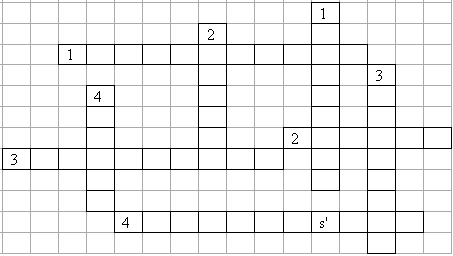
Across:
1. I always forget your wedding …
2. December 26th is called …. day.
3. The day Christ was crucified (распят). (2 words)
4. The day when many people promise to try and better themselves by, for example, giving up smoking. (3 words)
Down:
1. British people call April 1st …s’ Day. (2 words)
2. Most people like to relax at the …
3. A time in Britain when people buy a lot of presents.
4. The day of the week when people go to church.
Кроссворд для проверки
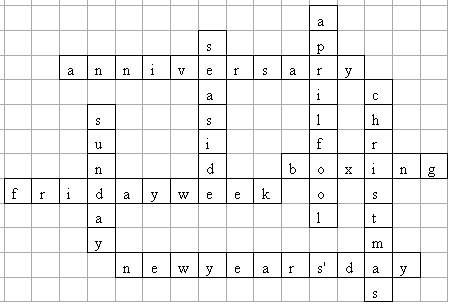
IX. Показ и презентация слайдов. Защита презентаций
– Two students have prepared presentations devoted to holidays. Let us look at them and put value of them.
X. Итог урока
– Let’s make a conclusion. What have you learnt today?
– Was the lesson interesting for you?
Выставление оценок за урок.
XI. Домашнее задание
– To write a letter to your friend about this lesson.
– Thank you for collaboration.
Праздники в англоговорящих странах
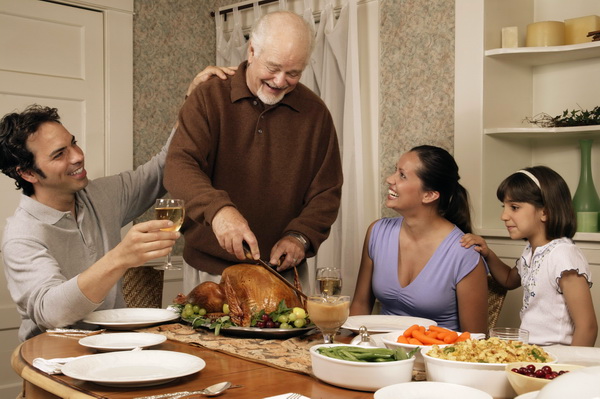
Разделы:
Иностранные языки
Класс:
6
Цель урока: Систематизация и обобщение знаний по теме « Праздники»
Компоненты цели:
- образовательный: обобщить и систематизировать изученный материал по теме «Праздники»;
- воспитательный: развивать толерантное отношение к культурам других стран;
- развивающий: развивать языковые способности учащихся;
- практический: формировать и развивать практические навыки владения английским языком, расширять словарный запас учащихся путём привлечения дополнительного материала, аудирования оригинальной речи.
Задачи урока:
- обобщать и систематизировать полученные знания по использованию грамматического материала – употребление настоящего продолженного времени; и лексического материала по теме « Праздники»;
- совершенствовать речевые умения по теме через индивидуальные выступления на уроке;
- совершенствовать навыки аудирования с целью извлечения необходимой информации для выполнения лексических упражнений;
- совершенствовать умение чтения через работу с учебником, дидактическим раздаточным материалом.
Оборудование:
- видеокассета « Window on Britain»;
- грамматическая таблица «The Present Continuous Tense « (Настоящее продолженное время)
- дополнительный раздаточный материал.
Содержание конспекта (приложение 1)
Приложение 2
Литература
- Spotlight. Английский в фокусе. Учебник для 6 класса общеобразовательных школ. Авторы: Ю.Е. Ваулина, Дж. Дули, О.Е. Подоляко, В.Эванс. М., Просвещение, 2010г. Стр 48-49.
- Spotlight. Английский в фокусе. Английский язык. Рабочая тетрадь. 6 класс. Пособие для учащихся общеобразовательных учреждений. М., Просвещение.2010 г Стр 30
- Oxford English Video. Window on Britain. Activity Book/Richard MacAndrew. Oxford University Press Стр 32-33
6.08.2012
Конспект урока английского языка в 5 классе по теме «Праздники»
Автор: Осолодкина Дарья Владимировна
Тип урока: урок обобщения и систематизации знаний.
УМК: Английский язык. 5 класс : учеб. для общеобразоват. организаций / [Ю.Е. Ваулина, Д. Дули, О.Е. Подоляко, В. Эванс]. – 7-е изд. – М. : Express Publishing : Просвещение, 2016. – 164 с. : ил. – (Английский в фокусе). – ISBN 978-5-09-037681-5.
Цель урока: сформировать коммуникативную компетенцию обучающихся на основе изученных ранее лексических единиц (далее – ЛЕ), а также грамматических и речевых структур по теме «Celebrations».
Задачи урока:
1. Образовательные: совершенствование навыков и умений говорения и чтения; активизация ранее изученных ЛЕ по теме «Праздники/Celebrations»; введение новых ЛЕ по заданной теме; актуализация грамматических навыков по теме Present Continuous (Настоящее длительное время).
2. Развивающие: развитие навыков и умений монологической речи; аргументация собственных утверждений с использованием сложноподчиненных предложений с союзом because (потому что); использование в устной речи ранее изученное время Present Continuous; развитие навыков и умений чтения, извлечения необходимой информации из текста и записи выделенной информации в табличной форме.
3. Воспитательная: умение слушать и уважать мнение друг друга; воспитание интереса к изучаемому иностранному языку, а также культуре и традициям англоговорящих стран.
Ход урока:
|
Этап урока |
Содержание |
Режим работы |
Время |
|
|
1 |
Организационный момент |
Teacher (далее — T): Good morning, children! Glad to see you. Sit down, please. Let’s start our lesson. |
Учитель-класс |
1 мин |
|
2 |
Фонетическая и речевая зарядка |
T: Look at the blackboard, please, and read the title of our lesson. Pupils (далее – P): Celebrations! T: Right! Today we are going to speak and read about celebrations in different countries. Before we start our topic we should decide what the word “celebration” means. Open the page 96, look at the pictures and think what “celebration” means. P: Holiday. P: Birthday. P: Festival. T: Right! |
Фронтальный |
5 мин |
|
4 |
Семантизация лексики |
· Введение в тему урока: T: Look at the pictures again and say what celebrations we can see here. P: New Year`s Day. P: Birthday. P: Thanksgiving Day. P: Victory Day. T: What is your favourite celebration? P: My favourite celebration is my Birthday because I always get a lot of presents. P: My favourite celebration is New Year because my mother always cooks a lot of tasty food. · Лесика по теме «Celebrations»: T: Let’s work in pairs. Look at the pictures once again. What are the people doing? (Обучающиеся описывают друг другу картинки, используя Настоящее длительное время и ЛЕ из упр. 1 стр. 96). |
Фронтальный Фронтальный Работа в парах |
5 мин 5 мин 5 мин |
|
5 |
Физкультминутка |
T: It’s time to have a rest. Let’s do some exercises together. Stand up Sit down Stand up Turn to the window Turn to the door Look at the ceiling Look at the floor Sit down Stand up Sit down Thank you very much! Let’s continue our lesson. |
1 мин |
|
|
6 |
Работа с текстом |
T: Let’s have a look at the exercise 3, page 96. There are four texts about celebrations in different countries. Let’s read them and try to fill the gaps. Remember that we should understand the words that are next to the gap in order to fill it with a right word! Keys: 1. on 2. and 3. in 4. is 5. and) T: After filling the gaps we should read the texts again very carefully and complete the table that you can see at the blackboard. Let’s read the name of each column and translate it (Таблица представлена в приложении 1). P: What is the name of the COUNTRY? – Название страны P: What is the name of the FESTIVAL? – Название праздника P: WHEN do people celebrate this festival? – Когда люди празднуют этот праздник? P: What do people DO while celebrating? – Что люди делают во время празднования? P: What special FOOD do people cook? – Что люди готовят на этот праздник? T: Let’s fill the first column together! Read the name of the column and answer the question using the first text. P: What is the name of the COUNTRY? The USA. P: What is the name of the FESTIVAL? Thanksgiving day. P: WHEN do people celebrate this festival? People celebrate in November. P: What do people DO while celebrating? Have parades, have family dinners. P: What special FOOD do people cook? Turkey, sweet potatoes, cranberry sauce, pumpkin pie. |
Фронтальный, индивидуальный |
15 мин |
|
7 |
Запись домашнего задания |
T: Let’s open your record books and write down your homework. At home you will complete the table and add your favorite Russian celebration. |
Фронтальный |
2 мин |
|
8 |
Подведение итогов |
T: We learned a lot about celebrations today. Everybody was very active, so thank you very much. The lesson is over. Good bye. P: Goodbye! |
Фронтальный |
1 мин |
Приложение 1
|
What is the name of the COUNTRY? |
What is the name of the FESTIVAL? |
WHEN do people celebrate this festival? |
What do people DO while celebrating? |
What FOOD do people cook? |
|
The USA |
Thanksgiving Day |
November |
Have parades, have family dinners |
Turkey, sweet potatoes, cranberry sauce, pumpkin pie |
|
Canada |
October |
|||
|
The Philippines |
The Banana Festival |
Early April |
Dress up in banana costumes, dance, have a cookery competition |
Bananas |
|
Northern India |
Holi |
Late February or early March |
Dress up, light fires, decorate cows |
— |
|
Korea |
Chuseok |
August- October |
Dress up |
Sweet rice cakes, fresh fruits |
|
Russia |
Приложение 2
Список литературы:
1. Английский язык. 5 класс : учеб. для общеобразоват. организаций / [Ю.Е. Ваулина, Д. Дули, О.Е. Подоляко, В. Эванс]. – 7-е изд. – М. : Express Publishing : Просвещение, 2016. – 164 с. : ил. – (Английский в фокусе). – ISBN 978-5-09-037681-5.
Конспект урока по теме « Праздники. Рождество.»
Кобзева М.В. 2012
Государственное бюджетное общеобразовательное учреждение средняя
общеобразовательная школа № 1191
г. Москва
Конспект урока английского языка по теме «Праздники» в 6 классе.
УМК Верещагиной И.Н., Притыкиной Т.А. «English-III »
для школ с углублённым изучением английского языка, лицеев, гимназий,
колледжей
6 класс (3 год обучения) , М.: Просвещение, 2004
Предмет: английский язык
Класс: 6
Учитель: Кобзева М.В
ГБОУ СОШ № 1191 г. Москва
2012
Конспект урока по теме « Праздники. Рождество.»
Кобзева М.В. 2012
Конспект урока английского языка с использованием ИКТ по теме
«Праздники» в 6 классе.
УМК Верещагиной И.Н., Притыкиной Т.А. «English-III »
6 класс (3 год обучения)
для школ с углублённым изучением английского языка
Учитель: Кобзева Марина Владимировна
Информационная карта урока
Тип урока: закрепление изученного материала.
Триединая дидактическая цель
активизировать
употребление
лексических единиц
и речевых образцов и
устной речи;
продолжить
формирование
умений говорения,
аудирования;
совершенствовать
грамматические
умения
развивать
речевые умения
учащихся по
теме;
развивать
аналитическое,
критическое и
образное
мышление
учащихся через
использование
проблемных
ситуаций и
творческих
заданий;
развивать
умение работать
самостоятельно;
воспитывать
желание
общаться на
английском
языке;
воспитывать
интерес и
уважение к
культуре и
традициям стран
изучаемого
языка, и своей
страны;
воспитывать
культуру
интеллектуально
го труда.
Методический инструментарий
Конспект урока по теме « Праздники. Рождество.»
Кобзева М.В. 2012
иллюстративно—
наглядный
поисковый
проблемный
парная
индивидуальная
Система контроля на уроке: сочетание контроля учителя с самоконтролем
учащихся
Оборудование: презентация в формате POWER POINT, фонограмма «Jingle,
Bells!»
Описание технологий
Информационно—
коммуникационные
технологии
— показ презентации по теме «Праздники.
Рождество» при развитии умений чтения, перевода,
говорения
Здоровьесберегающие
технологии
—разнообразные виды работы;
—использование приема релаксации в cередине
урока
Основные принципы проведения урока: доступность, научность, связь с
жизнью.
Ожидаемый результат обучения: активизация речемыслительной активности
обучающихся; повышение интереса школьников к изучению английского
языка;
Ход урока.
1. Организационный момент
T.: Hello, dear friends. I am glad to see you. You are looking great. How are you?
P1: Hello!
P2: We are fine, thank you.
T: Look at the blackboard. Read!
(на доске: Hallowe’en
New Year’s Day
Boxing Day
St. Valentine’s Day
Christmas)
Конспект урока по теме « Праздники. Рождество.»
Кобзева М.В. 2012
T.: What is the theme of our lesson?
P: «Holidays in Great Britain».
2.Речевая зарядка
T: You are right. Here there are the most popular holidays in Britain. I am sorry
but I’ve forgotten the dates of these holidays. Can you help me to remember?
Ps: Of course!
Hallowe’en is celebrated on the 31
st
of October.
(учащиеся называют даты празднования праздников.)
New Year is celebrated on…
T: Thanks a lot.
3. Фонетическая зарядка ( повторение лексики по теме)
а) Фонетическая зарядка.
T.: As we’ve learnt much about holidays, let’s repeat the words you have learnt
in this unit. Say after me:
Tradition-traditional, special, public, symbol, mean-meant, wish-wished, gather-
gathered, greeting card, sweetheart, hear-heard, receive- received.
Ученики слушают учителя и повторяют за учителем хором и индивидуально.
b) Активизация лексики в устной речи.
T.: Now I offer you to finish my sentences.
T.: In January we celebrate…
P1: New Year’s Day.
T.: On St. Valentine’s Day people send…
P2: Valentines.
T: Celebrating Halloween is a very old…
P4: Tradition.
T: People in Britain celebrate Christmas…
P5: On the 25
th
of December.
T: My friend sent me a beautiful…
P6: Greeting card.
Конспект урока по теме « Праздники. Рождество.»
Кобзева М.В. 2012
T: Soon we’ll celebrate Christmas. And I’ve already received a greeting card on it.
Look here!
Do English people send greeting cards to each other?
P1: Sending greeting cards is one of English traditions!
P2: There are different kinds of greeting cards in England.
T: What are they? Show them!
(Дети называют виды открыток и показывают их)
P1 Birthday cards
P2: Sympathy cards
P3: Congratulations cards
P4: Get-well cards
P5: Special occasion cards
T: So, Christmas is a reason to send and to receive a greeting card.
Suppose today is the 25
th
of December. What helps people to be happier this day?
P1: Christmas tree
P2: Coloured balls and lights
P3: Greeting cards
P4: Songs
T: Well! We have almost everything to be happier today. We have a fir-tree, a lot
of greeting cards, some toys but we haven’t sung yet! Do you know any Christmas
songs?
Ps: «Jingle, Bells!»
T: Let’s sing it.
Приложение 1.
(Дети поют уже известную им песенку)
Т : It’s high time to get more information about this holiday.
Учитель показывает презентацию « А Меrry Christmas »
4. Формирование навыков говорения. Совершенствование навыка устной
монологической речи.
T: To sum up our knowledge about Christmas, tell us how people in Great Britain
celebrate it.
Дети пересказывают текст, используя и новую информацию тоже.
5. Подведение итогов урока
T: Well, can you tell me what we did at the lesson?
P1: We talked about British holidays, Christmas.
P2: We spoke about British traditions.
Конспект урока по теме « Праздники. Рождество.»
Кобзева М.В. 2012
Приложение1.
«Jingle, Bells! ».
Jingle, bells! Jingle, bells!
Jingle all the way!
Oh, what fun it is to ride
In a one-horse open sleigh!
Dashing through the snow
In a one-horse open sleigh,
O’er the fields we do
Laughing all the way.
Bells on bob-tail ring,
Making spirits bright.
What fun it is to ride and sing
A sleighing song tonight.
Автор: Дзикун Татьяна Анатольевна
Организация: МБОУ СШ №41
Населенный пункт: город Ульяновск
Цель урока: Создание условий для успешного усвоения лексического материала и развития коммуникативной компетенции учащихся.
Задачи:
- Формировать навыки свободного оперирования лексикой по теме.
- Развивать навыки чтения, аудирования, говорения.
- Развивать познавательные УУД: самостоятельное выделение необходимой информации, структурирование знаний.
- Развивать регулятивные УУД: совместное целеполагание, планирование, саморегуляция, рефлексия.
- Развивать коммуникативные УУД: умение работать в паре, группе, умение строить речевое высказывание.
- Продолжить воспитывать интерес учащихся к английскому языку.
- Организационный момент
Good morning, boys and girls! I am glad to see you at our lesson. You see some guests have come to us. Turn and greet them. Well. Sit down. I see, you are ready for the lesson. I’ve aired the classroom. I am sure we’ll work as usually and you’ll do your best.
- Определение темы урока.
- look at the blackboard. What do you think about the theme of our lesson? Look at the screen. I have a pictogram for you. (Приложение 1) Guess it and you know the theme.
Yes, you are right. Today we are talking about British holidays. We are working according to our plan. Let’s start.
- Фонетическая зарядка. Phonetics.
At first I want you to train your pronunciation skills and remember the poems we have learned. Pay attention to these sounds which are not typical for the Russian language: [r], [w], [θ], [ð], [v]
Remember, remember the fifth of November.
Gunpowder, treason and plot
I see no reason why gunpowder treason
Should ever be forgot. Well done
- Warming up.
Your next task is a bit unusual. I have some answers at the blackboard and you should think about possible questions.
- It is celebrated on the 5th of November.
- They decorate houses and Christmas trees.
- Children usually eat hot cross buns and chocolate eggs.
- They go from house to house and say “Trick or treat?”
- The eldest child in the family buys a big cake. Very good
- Восстанавливаем текст. Gathering the text.
- Now we are going to work with a text about a British family holiday. Divide into 3 groups. Your first task is to put the parts of the text in the logical order.
You can also see some new words and word combinations before the text which help you to understand the text.
- public holidays- выходные дни
- Boxing Day-День подарков
- Good Friday-Страстная пятница
- Easter Monday-Пасхальный понедельник
- Spring Bank Holiday-праздник Весны
- Summer Bank Holiday-праздник Лета
- Carols-колядки
- hold a carol service-проводят торжественные службы
A) Before Christmas, groups of singers go from house to house. They collect money for charity and sing carols, traditional Christmas songs. Many churches hold a carol service on the Sunday before Christmas.
B) The most popular holiday is Christmas. Every year the people of Norway give the city of London a present. It’s a big Christmas tree and it stands in Trafalgar Square. Central streets are beautifully decorated.
C) There are fewer public holidays in Great Britain than in other European countries. They are: Christmas Day, Boxing Day, New Year’s Day, Good Friday, Easter Monday, May Day, Spring Bank Holiday and Summer Bank Holiday. Public holidays in Britain are called bank holidays, because the banks as well as most of the offices and shops are closed.
D) Relatives usually meet for the big Christmas dinner of turkey and Christmas pudding. And everyone gives and receives presents. The 26th of December, Boxing Day, is an extra holiday after Christmas Day. This is the time to visit friends and relatives or perhaps sit at home and watch football.
- The fun starts the night before, on the 24th of December. Traditionally this is the day when people decorate their trees. Children hang stockings at the end of their beds, hoping that Father Christmas will come down the chimney during the night and fill them with toys and sweets. Christmas is a family holiday. Well done.
- Secondly let’s do some exercises.
The first one is «True or False». Correct false sentences.
1. There are more public holidays in Great Britain than in other European countries.
2. The most popular holiday is Christmas.
3. Every year the people of Finland give the city of London a present.
4. The fun starts the night before, on the 22nd of December
5. Christmas is a family holiday.
6. The 26th of December, New Year’s Day, is an extra holiday after Christmas Day.
The second one is to answer the following questions about the text.
1. What is the most popular holiday in Britain?
2. Why do groups of singers go from house to house before Christmas?
3. What do many churches hold on the Sunday before Christmas?
4. When do people decorate their Christmas trees?
5. Is Christmas is a holiday for friends?
6. What are traditional Christmas dishes? Nice job
- Puzzle Time (пиктограмма)
- time to relax. I have a riddle for you. You have to guess the name of one of the Scottish holidays. Take the first letter of each word and make the new one. Who is the first will get a sweet prize. (Приложение 2)
- Проверка домашнего задания. Homework.
Now, it’s time to check up your homework. At home you should make up projects about your favourite holidays. Remember the plan and start.
I would like to tell you about one of the British holidays. I think it’s very interesting to talk about it.
It is … (Christmas, Easter, Halloween, Guy Fawkes Night)
This holiday is celebrated in … (winter, spring, autumn) on the … of …. (in …)
On this holiday people … and ….
Children … .
The traditional dishes for … are … and …
I like … because it is … and … (merry, funny, unusual, amazing)
That is all I want to tell about this holiday.
- Говорение. Описание фотографии.Speaking.
Your last task is describing these pictures. Look at them; your task is to describe one of them. You are working in groups. Use the plan.
I have chosen photo number 1.
1. I took this photo/picture when I was in GB during …
2. In the photo/ picture you can see …
3. She/he … … (Present Continuous)
4. The time of the year is probably …(winter, spring, summer, autumn)
5. The weather in the photo/ picture is …(sunny, warm, rainy)
6. In my opinion, the atmosphere of the photo is … (calm, merry, homely… )
7. I like this photo because I enjoy … (Christmas, Easter, Halloween, Guy Fawkes Night)
8. That is all I want to tell you about this photo/picture.
- Итог урока.
Our time is up.
— We have done enough. What did you like most at the lesson? What task was the most difficult? Учитель организует рефлексивную деятельность учащихся.
Well, my dear students, thanks for your work. Your marks are …
Our lesson is over. Good bye.
Приложения:
- file0.docx.. 578,2 КБ
- file1.docx.. 1,2 МБ

